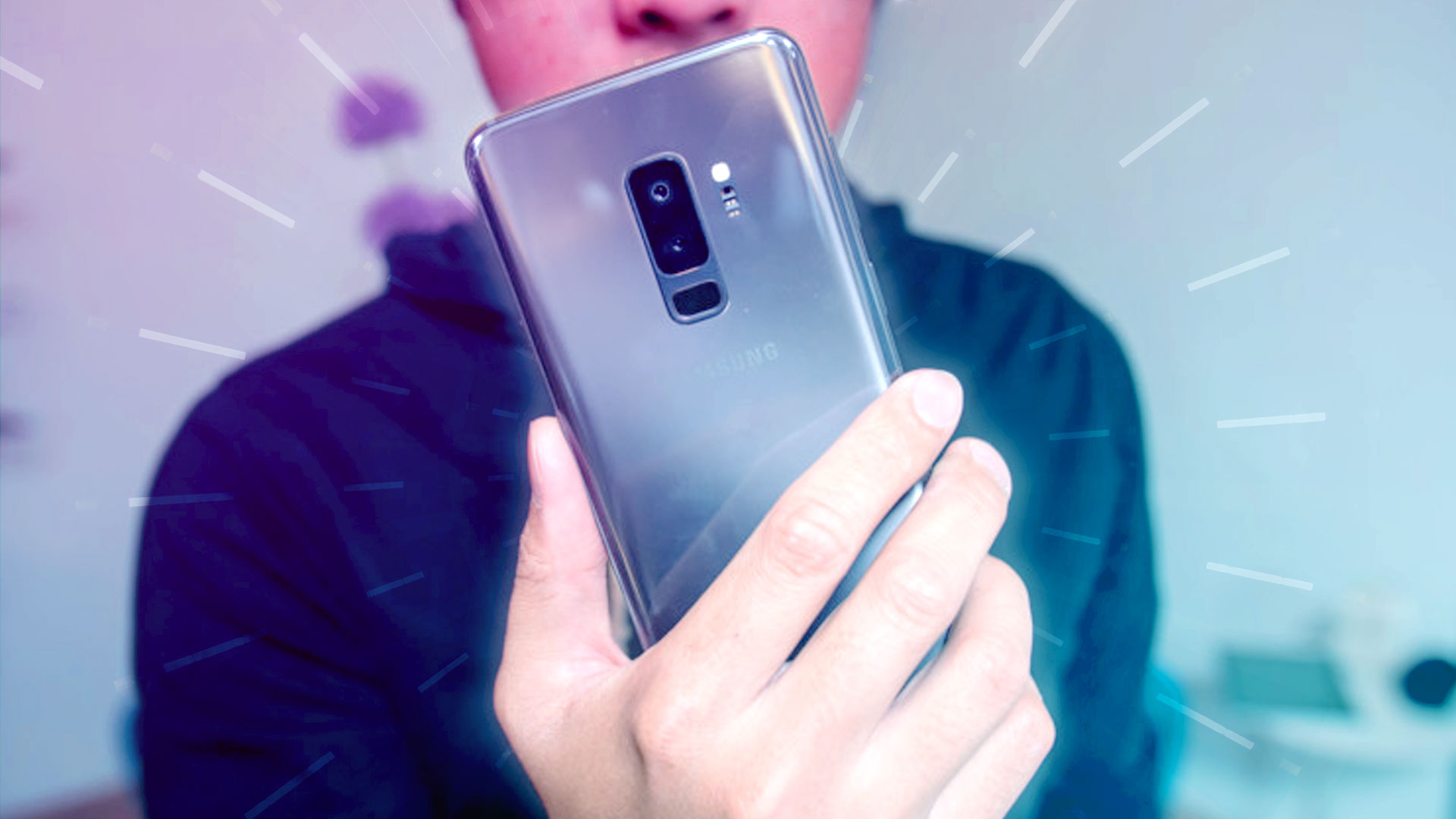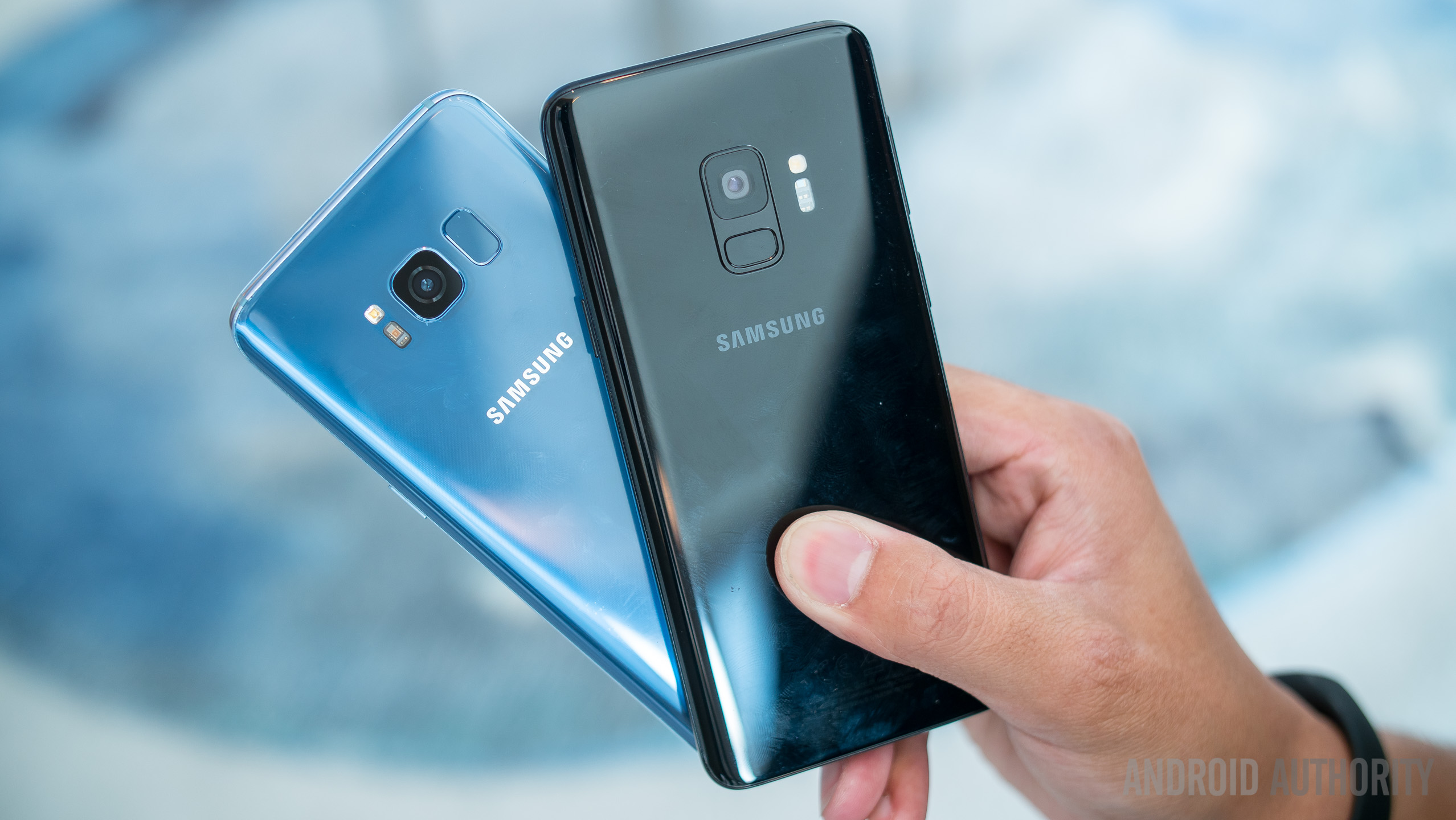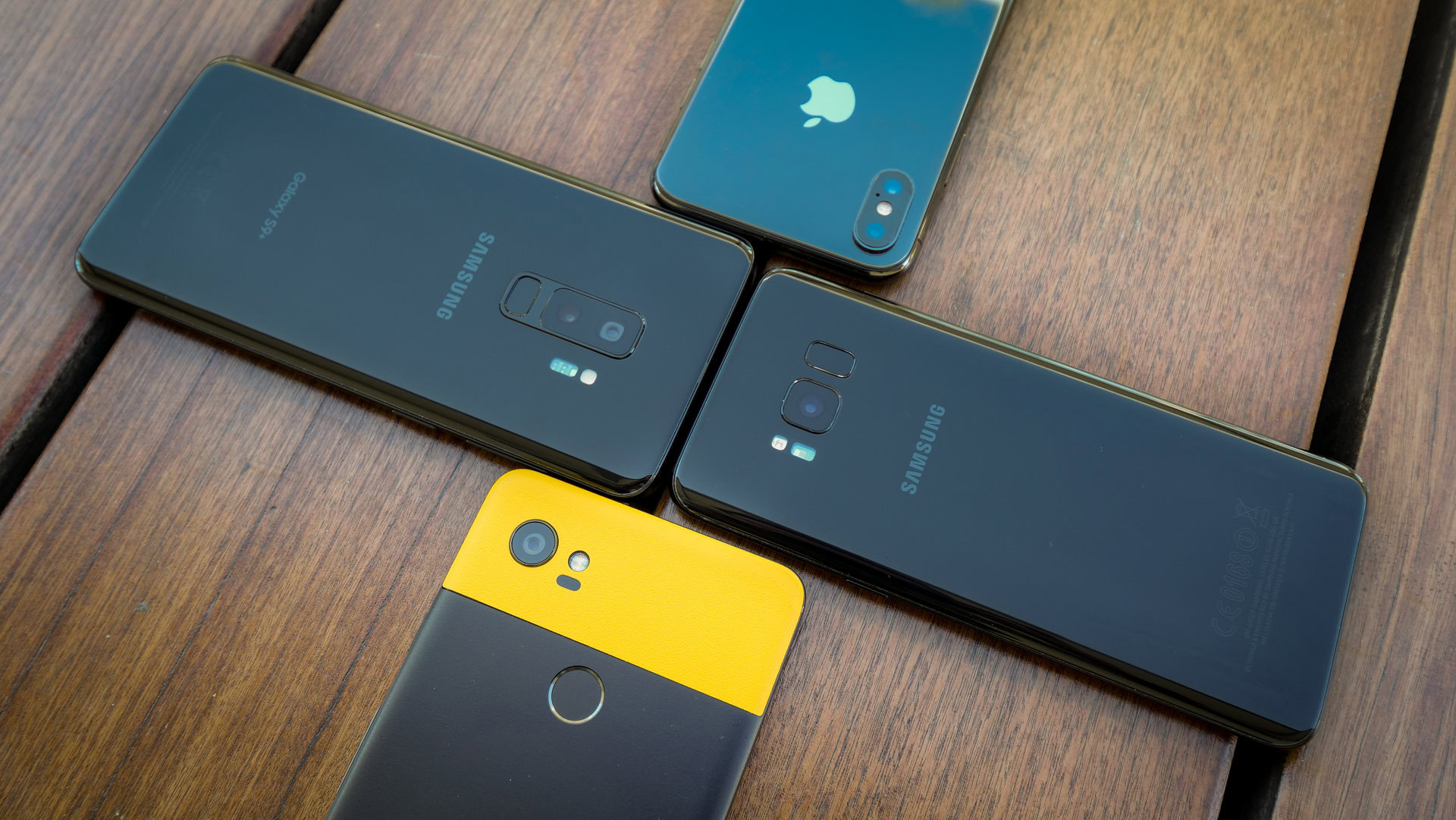If you own a Galaxy S8, is the Galaxy S9 worth the upgrade?
This was a question posed in our review and one that we've heard numerous times since then. We haven't done a full-on versus video for it, but let's take a look at the camera samples from our big camera shootout and see if anything pops out. Is the Galaxy S9 a worth the upgrade, or should current owners keep their year-old Samsung devices? Let's dive in.
Classic mixup

The Galaxy S9 and the previous S8 are easy to mix up, which says quite a lot.
"The mixup" is basically what I would call any moment I tried to grab one of the phones when they were lying on the table, especially with their fronts facing upward. There is so little separating these phones visually that I often mistook one for the other. As a reviewer, a second glance is simple enough to figure out the mystery — especially with the larger Plus models, the secondary lens is a dead giveaway — but the materials and the design choices are fundamentally the same. Every button is in the same place, including the Bixby button.

Samsung Galaxy S9 (right), Galaxy S8 (left)
The one meaningful change is the placement of the fingerprint reader, which is in a much better spot this year just underneath the camera module. Even better, the Galaxy S9 Plus and its double lens put the fingerprint reader even lower, making it more reachable on the larger backing. This is arguably a much more significant improvement, as the S8 Plus and the Note 8 made fingerprint biometrics simply impractical for most users.
Obviously, the Infinity Display returns and it provides one of the best display experiences of any phone. All the specifications are basically the same as the S8 and the quality didn't improve in this year's model. That is fine, however — it's basically a case of "if it ain't broke, don't fix it."

Day to day
I went used the Galaxy S8 over the last few days to see if any portion of the day-to-day experience felt lacking. No matter what I threw at the phone, whether it was camera usage, gaming, media, or just plain browsing, the S8 remained every bit as fast as the Galaxy S9 during a typical day. All of the features remained the same, including NFC and payment platforms, wireless charging, and even other biometrics like Iris Scanning (even if it wasn't merged with Face Unlock like in the Galaxy S9). It didn't feel like much was missing.
It honestly does not feel like too much is missing.
One might want to make a change based on the processing package, as the Snapdragon 845 is in the Galaxy S9. However, the S8's 835 is still more than a capable processing unit. As I said, it performed swimmingly despite being a year old. I can also understand if some users opine for the increased RAM in the S9 Plus, but only the heaviest of users will really push any of the existing specifications to the limit.

See Also: Galaxy S8 update tracker
Feature sets also lacked real differentiation — save for the camera, of course. All of the main features remain, even the Edge UX and multitasking and Samsung Themes. Oreo should be arriving in the Galaxy S8 eventually, which would add the missing piece of picture-in-picture, which the S8 already has with the somewhat hidden S Window. The only real holes are in the AR capabilities of Bixby, which include live translation of words in the real world, AR makeup application, and live recognition of objects and foods. Bixby itself gets updated regularly thanks to Samsung Apps, so it should be a matter of time before these features make it to the S8. Even then, the core experience of voice commands, follow up commands, and Bixby Home are all there for those who actually use them.

Photo finish
So it seems obvious that the main part differentiating these two phones is the camera. The f/1.5 fully open aperture of the Galaxy S9 is a step in the right direction from the f/1.7 of its predecessor, but that difference is actually pretty minimal. What sets the S9 apart from every other phone this year is a dual aperture where actual blades come down and shift the camera to an f/2.4 aperture. This is something more advanced users will take better advantage of, as the aperture changes automatically and pretty effectively when using auto mode. The pictures from the S9 are pretty great, despite a few problems with overexposure. The whole experience is helped along by another new addition: multi-frame processing. This takes a ton of shots to have as much data to work with as possible. It seems to be doing its job, though it also seems like only the main camera (not the zoom lens or the front facing camera) benefits from it and the RAM built into the camera module.

Comparatively, the Galaxy S8 should be quite a few steps behind, but our tests actually showed that last year's model kept up pretty well. Low light shooting was our main metric for this, as the very wide aperture of the Galaxy S9 was sure to be difficult to beat. But in night conditions with just the lights of this bridge to show us the way, the S8 was able to still bring out a pretty good shot. Both phones skew toward warmer color temperatures in low light, but it does a better job of exposing the scene than most ocompetitors. Samsung tends to work its cameras a bit harder than others, with photos that expose plenty of the scene at the slight expense of an accurate recreation. Our recent comparison with the Pixel 2 XL and the iPhone X illustrate this, though we did give the Samsung phones props for lighting quite dark subjects.
You would think that the Galaxy S8 is far behind the newest phone, but it's been more than capable of keeping up.
- Samsung Galaxy S9 Plus
- Samsung Galaxy S8
The Galaxy S8 is still a viable shooter for most situations, including low light. In good lighting situations, there is little reason to believe the S9 makes the S8 obsolete. If anything, what Samsung added to the camera app will appeal to users looking for more specific situational shots. The most obvious situation would be zoomed photos, which are only achievable with the Galaxy S9 Plus due to the secondary lens. The combination of lenses on the rear of the Plus model also allows for better portrait shots, as the camera uses both lenses to achieve the bokeh effect a bit more effectively. Portrait mode is probably more desirable than just getting further reach in the camera app, so we won't blame you if this mode becomes a main factor in the decision.
- Samsung Galaxy S9 Plus
- Samsung Galaxy S8
We mentioned the AR elements added into the camera for Bixby assistance, but the camera app has a couple of fun modes, too. AR Emoji is a rather polarizing feature, mostly because of how buggy it seems, but being able to create a personal avatar and use it in augmented reality for videos and photos can be fun. Even more useful are the many different GIFs it creates, which are easily shareable across all social media platforms and messaging apps. Finally there is also Super Slow Motion, which makes super dramatic 960fps video, based either on your input or automatically based on when the movement occurs in the scene. It is a fun mode the S8 does not have, even though the existing slow motion option of last year's phone is still good to use.

Overall, the S9 makes some clear additions over the previous generation, but on a fundamental level, people looking for good selfies (without AR Emoji) and good photos can stick with their Galaxy S8 and not feel the phone envy too heavily.
For at least the next year (or whenever the next Galaxy S comes out) you are probably still in good shape with the S8.
There you have it – if you have a Galaxy S8, don't worry, everything's fine. Unless you are really fiending for the absolute cutting edge, the S9 in't terribly far ahead of the phone you already own. Yes, it's a top phone in this current flagship market, but it's an iterative step from what came before it. Aside from the higher specs and the zoom lens in the S9 Plus, the enhancements in the S9 don't completely change the day-to-day experience. We think that if you have a Galaxy S8 and haven't worn it down yet, there is still room to hold out for the next big thing. Maybe a Galaxy Note 9. Maybe wait a little longer for another generation of Galaxy S phones to come around. For whatever amount of time you choose, the S8 should still have you covered.
Are you planning on upgrading to the latest version of the Galaxy? If you already made the leap, how has your experience been?
from Android Authority https://ift.tt/2EQXfhX
via IFTTT







Aucun commentaire:
Enregistrer un commentaire